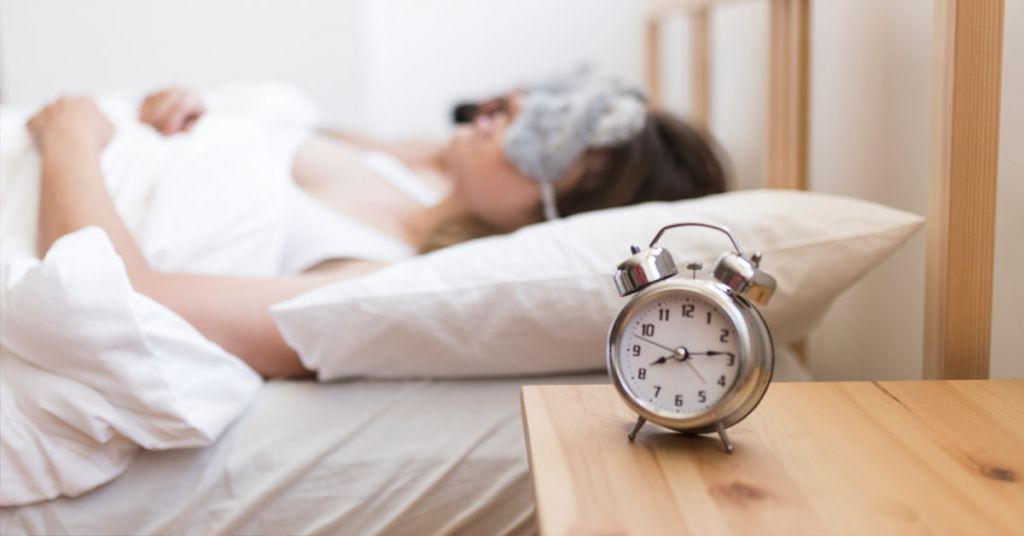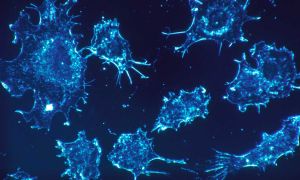
Not getting enough sleep? You might be increasing your risk of contracting viral diseases — including COVID-19. But that’s not all. Sleep deprivation is literally cutting your life short.
Experts have painstakingly studied the consequences of insufficient sleep on our health. But you don’t have the time to go through every scientific article, report, or case study out there. That’s why I’ve taken the time to take all the important points and compile them into one comprehensive article. Find out how you’re putting your life in danger every time you lose sleep, let’s dive in!
Does Sleep Deprivation Increase Your Mortality?
Some people convince themselves that they can “sleep when they’re dead.” This idiom is more of a prediction. And it’s a step closer to materializing every time one chooses to miss catching z’s.
A long-term study spanning 22-years confirmed that sleep significantly contributes to mortality. Researchers credit its association with health complications such as diabetes and cardiovascular diseases as the reason behind this. In fact, missing just 6 hours of sleep increases your risk of developing diabetes. That’s a hefty price to pay with just one night of sacrificing some shut-eye.

Insufficient sleep affects blood pressure, hormones, inflammation, and the nervous system’s autonomic tone in a way that contributes to atherosclerosis. This disease clogs up the arteries with cholesterol deposits, fatty substances, and cellular waste.
Sleep Deprivation and Immune Deficiency
Restlessness and irritation are the least of your worries when you don’t get enough sleep.
To understand the burden of sleep deprivation on your immune system, let’s put it into context. Scientists reported that being restricted to four hours of sleep for a single night alone reduces immune cell response by up to 72%. So if you think pulling that all-nighter is worth it, I encourage you to think twice.

Moreover, acquiring enough sleep encourages the activity of microglia. These are immune cells that constitute 10-15% of the total cells in your brain. They work to rehabilitate the brain after a long day’s work. Microglia are highly active while you’re asleep, and they function to rewire the connections between nerve cells. They also play a key role in fighting infections and damage repair.
Before you read on, just know that you’re in for some bad news. The adverse effects of a compromised immune system as a result of insufficient sleep lead to:
Scientists found that aspects of the body’s immune response shut down in those who are habitually deprived of sleep. It affects the circulation of white blood cells in particular, which is crucial to the body’s resistance against viruses.
A similar finding is echoed in research on how partial sleep deprivation reduces killer cell activity by 72%. Natural killer cells (NK cells) are a type of white blood cell that plays an integral role in ridding the body of virally infected cells. Additionally, sleep plays a fundamental role in how the central nervous system communicates with the immune system during an infection.
The dangerous way sleep loss advances immune deficiency puts people at a significantly high risk of developing cancer. World Health Organization officially classified the disruption of normal sleep patterns as an IARC2A carcinogen in 2007. Particularly referring to that caused by rotating night shifts at work.
Again, this is primarily attributed to the drastic decline in NK cells when you lose even just four hours of sleep. NK cells don’t just target cells infected by viruses. These cells identify and eliminate tumor cells that could later develop into cancer. The reduction of NK cell activity increases your risk of dying from cancer.
Sleep deprivation and circadian rhythm disruption have a startling impact on the human DNA genetic code. A 2013 study subjected a group of adults to a limited sleeping schedule of six hours per day in seven days. Scientists found that the lack of sleep caused deformity on 711 genes.
They saw increased activity in approximately half of those genes. Unfortunately, these were genes linked to tumor formation, chronic inflammation, and stress leading to cardiovascular disease. The other half with decreased activity was associated with immune function. Again, this stresses the effect of sleep deprivation on the immune system.
The Restorative Benefits of Sleep
The tissues in our bodies go through a natural and continuous process of degradation (catabolism) and renewal (anabolism). Catabolism is most active when we are awake while sleep shifts our internal balance toward anabolism.
Sleep enhances cell division and protein production that happens during the renewal process. Which, in turn, is crucial for repairing damaged tissues. You think you’re merely laying down and closing your eyes but your body is busy repairing itself during this time. Without enough sleep, this natural process is disrupted.
So if you haven’t already adopted proper sleeping habits, we encourage you to do so. Do tuck in and sleep well. You’ll be doing your body a favor.

How Much Sleep is Enough Sleep?

Indeed, insufficient sleep has disastrous effects on your immune system and your overall health as a result. We are exposed to viruses and carcinogenic toxins daily. Our immune system’s response to these threats is to activate NK cells at full capacity. But sleep deprivation compromises this response. Treat sleep the way you should: As a necessity instead of a luxury.
Eight hours of sleep is generally accepted as the standard. But the optimum hours of sleep required to maintain overall wellbeing depends on one factor: age. The US National Sleep Foundation recommends seven to nine hours of sleep for adults. Adolescents require eight to 10 hours of sleep while children should go beyond 10 hours. Newborn babies need 17 hours of sleep in a day. See the full chart below:
| Age | Recommended | May be appropriate | Not recommended |
| Newborns
0-3 months
|
14 to 17 hours | 11 to 13 hours
18 to 19 hours |
Less than 11 hours
More than 19 hours |
| Infants
4-11 months
|
12 to 15 hours | 10 to 11 hours
16 to 18 hours |
Less than 10 hours
More than 18 hours |
| Toddlers
1-2 years
|
11 to 14 hours | 9 to 10 hours
15 to 16 hours |
Less than 9 hours
More than 16 hours |
| Preschoolers
3-5 years
|
10 to 13 hours | 8 to 9 hours
14 hours |
Less than 8 hours
More than 14 hours |
| School-aged Children
6-13 years
|
9 to 11 hours | 7 to 8 hours
12 hours |
Less than 7 hours
More than 12 hours |
| Teenagers
14-17 years
|
8 to 10 hours | 7 hours
11 hours |
Less than 7 hours
More than 11 hours |
| Young Adults
18-25 years
|
7 to 9 hours | 6 hours
10 to 11 hours |
Less than 6 hours
More than 11 hours |
| Adults
26-64 years
|
7 to 9 hours | 6 hours
10 hours |
Less than 6 hours
More than 10 hours |
| Older Adults
≥ 65 years |
7 to 8 hours | 5 to 6 hours
9 hours |
Less than 5 hours
More than 9 hours |
When it comes to immune function, sleep isn’t an option.
You deliberately put your life at risk every time you pass on sleep. Practice healthy sleeping habits to keep your immune system at peak performance. Uncover more tips about enhancing your immunity at BoostYourImmuneSystem.org.





